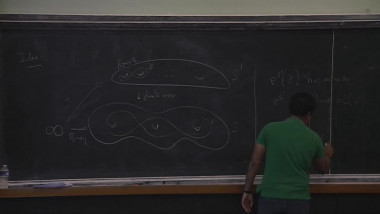Tracking the adaptation and compensation processes of patients’ brain arterial network to an evolving glioblastoma
Apparaît dans la collection : 2022 - T1 - WS1 - Tissue growth and movement
We develop automated personalized system-level analysis methods to analyze the structure of a patient’s complete brain arterial network, and to estimate its mean blood flow behavior, from magnetic resonance (MR) images. This allows us to track the compensatory arterial changes and mean blood flow behavior from a patient’s clinical images. By analyzing time series data from a patient with aggressive brain cancer, we found significant variations in the structure of the arterial network, and the resulting changes in blood flow dynamics due to biomechanical mechanism. We simulated the evolution in the patients arterial network over time and find that the patients arterial network changes are due to the interplay between the development of the tumor and compensation processes of the brain. This implies that significant disease-related local changes cause global changes at the arterial network, which in return impacts the progression of the disease. We hope that such unique spatiotemporal patterns of the arterial network could assist in predicting the evolution of glioblastoma over time. This is a joint work with J. Zhu, S. Teolis, N. Biassou, A. Tabb, and O. Lavi.











